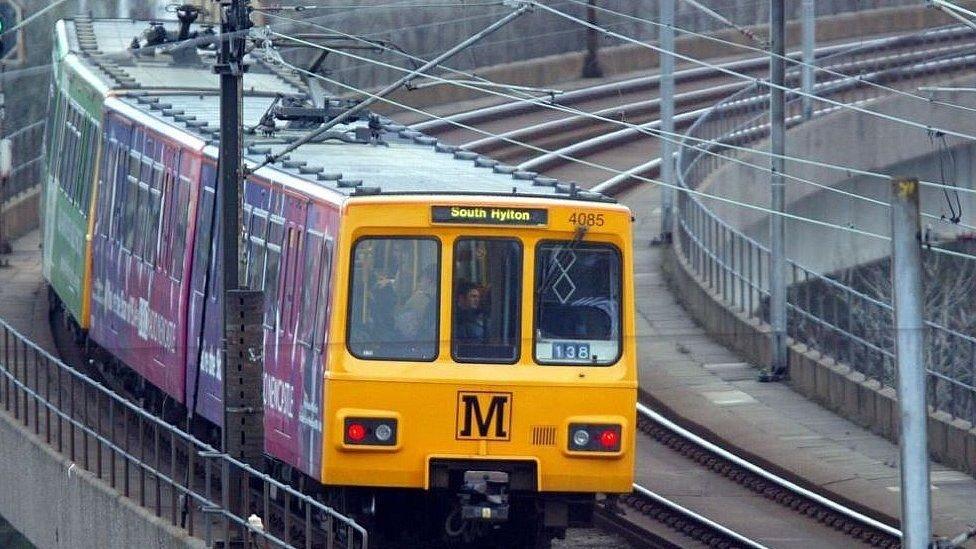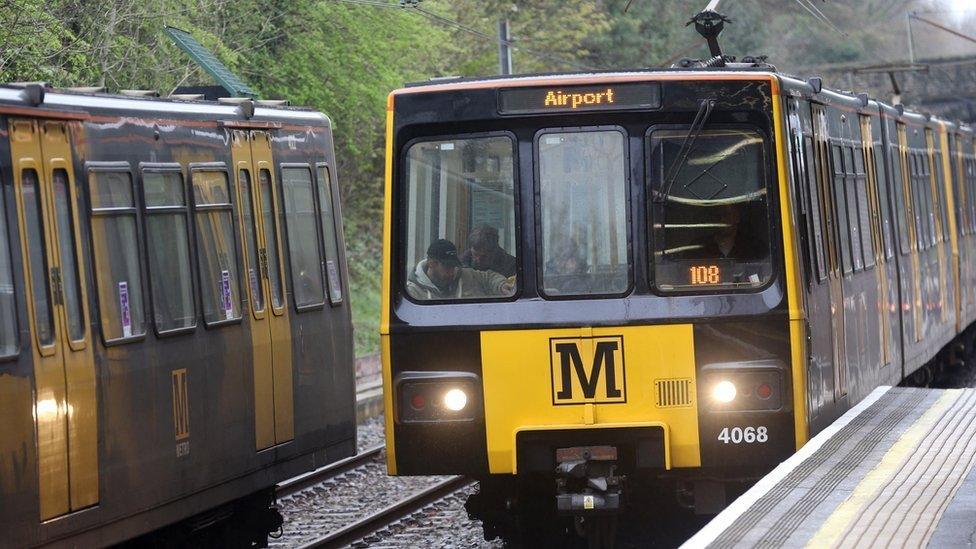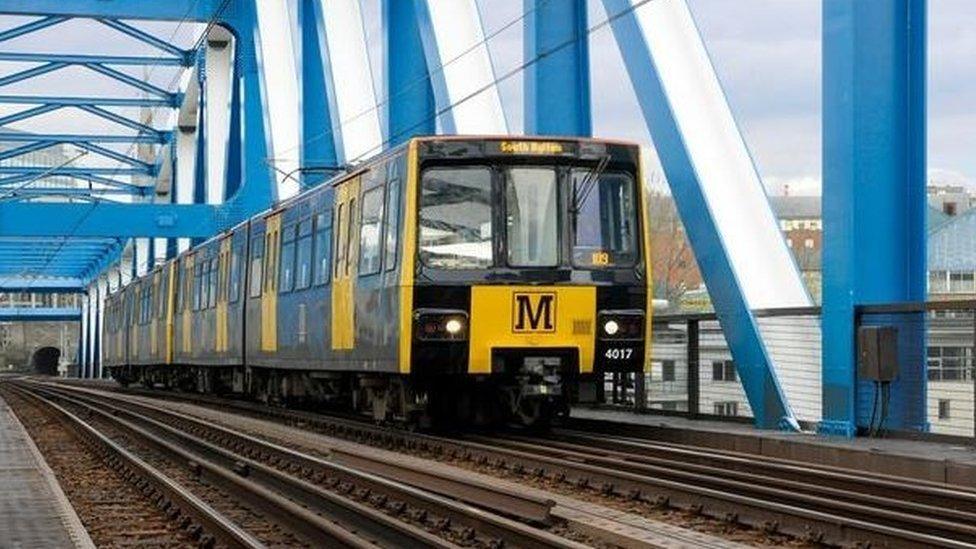Tyne and Wear Metro's electricity bills to jump by millions
- Published

The Metro system has been hit by financial difficulties since the beginning of the pandemic
The Tyne and Wear Metro's electricity bills are set to jump by millions of pounds as the cost of energy spirals.
Nexus, which operates the rail system, predicts charges this year will be £4m higher than previously expected, according to a new report.
It said costs had "increased significantly".
It comes after the network received several government bailouts following a collapse in user numbers amid the coronavirus pandemic.
Nexus would not confirm its total energy costs, for reasons of commercial sensitivity, but said: "The cost of high-voltage power which is used to operate the Metro system has increased significantly due to the volatility of the energy market.
"We are working to achieve the lowest possible price for our power supply in the year ahead, but it is still too early to predict what the extra cost will be.
"Nexus will be keeping this under constant review, as we will with all of our other costs, which, like all rail companies in the UK, are being affected by the cost of living crisis."
Ticket prices have risen by up to 9.5% this year in a bid to stave off cuts to services and local councils agreed to increase their funding to Nexus to help plug a £21m black hole in its budget, the Local Democracy Reporting Service said.

Follow BBC North East & Cumbria on Twitter, external, Facebook, external and Instagram, external. Send your story ideas to northeastandcumbria@bbc.co.uk, external.
Related topics
- Published14 June 2022

- Published5 April 2022

- Published5 October 2021
